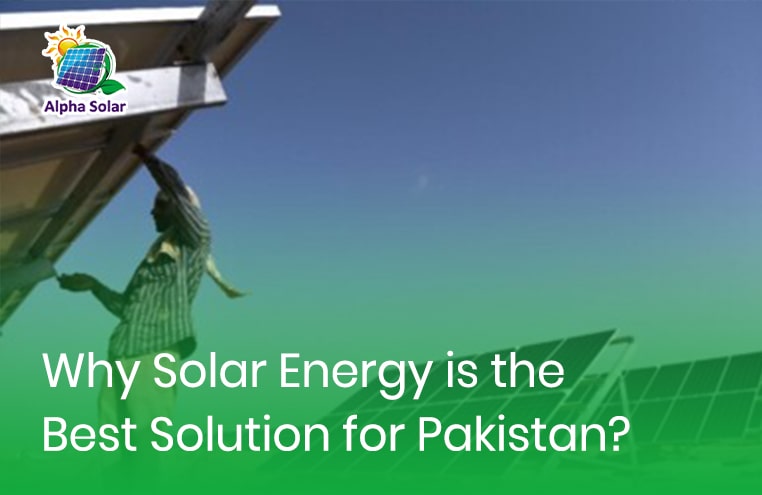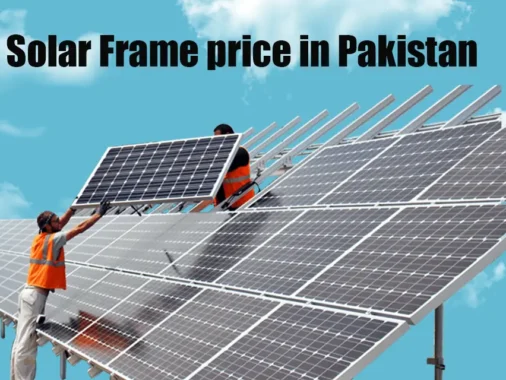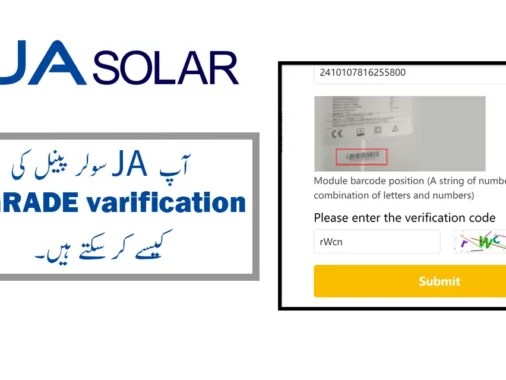Pakistan has tremendous potential for renewable energy, particularly solar power. According to World Bank reports, only 0.071% of Pakistan’s total area is sufficient to meet the country’s entire electricity demand through solar energy installations. Currently, Pakistan generates just over 2000 MW of electricity from solar energy, with projections indicating an increase to around 10000 MW by 2030.


This blog will explore the reasons why solar energy is the best solution for Pakistan.
Why is Solar Energy the Optimal Solution for Pakistan?
From almost every perspective, solar energy is the best solution for Pakistan to combat electricity shortages and increase generation rates. However, the government must create policies to encourage local and foreign investment in the solar industry to make it a viable solution for the country. Let’s delve into the reasons why solar energy is the best solution for Pakistan.
Solar panels use sunlight as an inexhaustible and free source of fuel. Pakistan, with its abundant sunshine hours, has tremendous potential to generate electricity through solar energy. On average, Pakistan receives 7-8 hours of sunlight per day, making it economically feasible to produce the necessary electricity. The key is to increase the number of solar projects installed.
Unlike fossil fuels, solar panels are a one-time investment, leading to lower electricity rates. This eliminates concerns about power outages, generator fuel costs, and higher monthly tariff rates for production facilities that switch to solar energy. Solar energy plants also provide better control over installation costs.
Solar energy installations don’t require significant equipment for setup, making them accessible to businesses and homeowners. Solar power plants are easier to establish compared to dams, and homeowners face no restrictions when installing their own power plant on their rooftops.
Solar energy has the potential to create numerous job opportunities in Pakistan, addressing the country’s challenge of insufficient job creation. The increased demand for solar system installers, designers, salespersons, and related roles will boost the economy.
Affordability of Solar Panels
In Pakistan, solar panels are increasingly affordable, and the State Bank of Pakistan offers a financing scheme to enhance affordability for households.
Pakistan is facing severe climate change and global warming, making the transition to renewable energy solutions like solar energy crucial to prevent future climate-related disasters.
Transitioning to solar energy reduces reliance on imported resources, lowering the overall trade deficit.
Challenges in Transitioning to Solar Energy in Pakistan
Pakistan has the opportunity to generate ample electricity using solar energy. However, there are challenges hindering the transition, such as a lack of infrastructure and limited access to investment.
Lack of Government Support
The government’s lack of support for solar energy makes it challenging for companies to get financing and permits.
Technical barriers, lack of skilled labor, and inadequate regulations are additional obstacles hindering the transition to solar energy in Pakistan.
Pakistan’s political instability has resulted in inconsistent policies regarding solar energy, leading to low renewable energy generation.
Alpha Solar’s Role in Pakistan’s Solar Industry
Despite the industry’s fluctuations, Alpha Solar has remained committed to delivering high-quality yet affordable solar panel systems in Pakistan. The company’s dedication is evident through its alignment with the State Bank of Pakistan’s financing policy and affiliations with all commercial banks in the country.
For inquiries related to solar panel systems and solar energy in Pakistan, Alpha Solar provides complimentary quotations and free site surveys for a seamless transition to solar energy.






